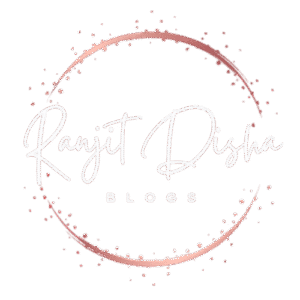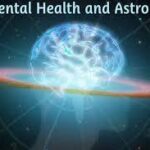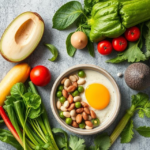Have you ever noticed how what you eat can affect how you feel? Maybe you feel more energetic after a bowl of oatmeal and berries, or more relaxed after a cup of chamomile tea. Or maybe you feel sluggish after a greasy burger and fries, or anxious after too much coffee. The connection between food and mood is not just in your head; it’s backed by science. In this blog post, we will explore some of the ways in which food can influence your mood, and what you can do to eat for better mental health.
How does food affect your mood?
Food can affect your mood in several ways, depending on what, when, and how much you eat. Here are some of the main mechanisms:
- Blood sugar levels. The foods you eat can affect your blood sugar levels, which in turn can affect your mood and energy levels. Foods that are high in refined carbohydrates, such as white bread, pasta, rice, sweets, and sugary drinks, can cause rapid spikes and drops in your blood sugar levels. This can make you feel irritable, anxious, tired, or hungry soon after eating. On the other hand, foods that are high in fiber, protein, and healthy fats, such as whole grains, beans, nuts, seeds, eggs, fish, and avocado, can help stabilize your blood sugar levels and keep you feeling full and satisfied for longer.
- Brain chemicals. The foods you eat can also affect the production and function of brain chemicals that regulate your mood, such as serotonin, dopamine, and norepinephrine. These chemicals are made from amino acids, which are the building blocks of protein. Some amino acids, such as tryptophan, tyrosine, and phenylalanine, are essential for mood regulation, but they cannot be made by the body and must be obtained from food. Foods that are rich in these amino acids include turkey, chicken, eggs, cheese, soybeans, bananas, nuts, seeds, and dark chocolate2. However, these amino acids have to compete with other amino acids to enter the brain through a special transporter. Eating carbohydrates can help increase the availability of tryptophan by stimulating the release of insulin, which clears other amino acids from the bloodstream3. Therefore, eating a balanced diet that includes both protein and carbohydrates can help optimize your brain chemistry and mood.
- Gut microbiome. The foods you eat can also affect the composition and function of your gut microbiome, which is the community of trillions of bacteria and other microorganisms that live in your digestive system. Your gut microbiome plays a key role in digesting food, producing vitamins and hormones, modulating inflammation, and communicating with your brain via the vagus nerve and other pathways4. Some studies have shown that certain types of bacteria in your gut can produce neurotransmitters that affect your mood5. For example, Lactobacillus and Bifidobacterium can produce serotonin, Bacillus can produce dopamine, and Escherichia can produce norepinephrine6. Eating foods that support a healthy and diverse gut microbiome can help improve your mood and mental health. These foods include probiotics (live bacteria that benefit your gut), such as yogurt, kefir, sauerkraut, kimchi, and kombucha, and prebiotics (fiber that feeds your gut bacteria), such as garlic, onion, leek, asparagus, banana, oats, barley, and flaxseeds.
What are some examples of mood-boosting foods?
While there is no single food that can cure depression or anxiety, eating a balanced and varied diet that includes plenty of fruits, vegetables, whole grains, legumes, nuts, seeds, and lean proteins can help support your mood and mental health. Some specific foods that have been shown to have mood-boosting properties include:
- Berries. Berries are rich in antioxidants, such as anthocyanins, that can help protect your brain cells from oxidative stress and inflammation. Oxidative stress and inflammation have been linked to depression and cognitive decline. Berries also contain vitamin C, which can help lower cortisol levels. Cortisol is a stress hormone that can impair memory and mood.
- Dark chocolate. Dark chocolate (at least 70% cocoa) contains flavonoids, which are antioxidants that can improve blood flow to the brain and enhance cognitive function. Dark chocolate also contains magnesium, which can help relax your muscles and nerves. Magnesium deficiency has been associated with anxiety disorders. Dark chocolate also stimulates the release of endorphins, which are natural painkillers and mood enhancers.
- Green tea. Green tea contains caffeine, which can boost your alertness and mood. Green tea also contains L-theanine, an amino acid that can reduce stress and anxiety by increasing the production of alpha waves in the brain. Alpha waves are associated with relaxation and creativity. Green tea also contains polyphenols, which are antioxidants that can protect your brain cells from oxidative stress and inflammation.
- Nuts and seeds. Nuts and seeds are excellent sources of healthy fats, such as omega-3 fatty acids, that can help improve your mood and cognitive function. Omega-3 fatty acids are essential for the structure and function of your brain cells and can modulate the activity of neurotransmitters and receptors involved in mood regulation. Nuts and seeds also contain vitamin E, which is an antioxidant that can protect your brain cells from oxidative stress and inflammation. Nuts and seeds also contain tryptophan, tyrosine, and phenylalanine, which are amino acids that can help produce serotonin, dopamine, and norepinephrine.
Conclusion
Food and mood are closely connected. What you eat can affect how you feel, and how you feel can affect what you eat. Eating a balanced and varied diet that includes plenty of fruits, vegetables, whole grains, legumes, nuts, seeds, and lean proteins can help support your mood and mental health. Eating specific foods that are rich in antioxidants, amino acids, vitamins, minerals, and healthy fats can also help boost your mood and cognitive function. Making small changes to your diet can make a big difference to your mood.
I hope this blog post has helped you understand the relationship between food and mood and how to eat for better mental health. If you have any questions or comments, please feel free to leave them below. Thank you for reading!






